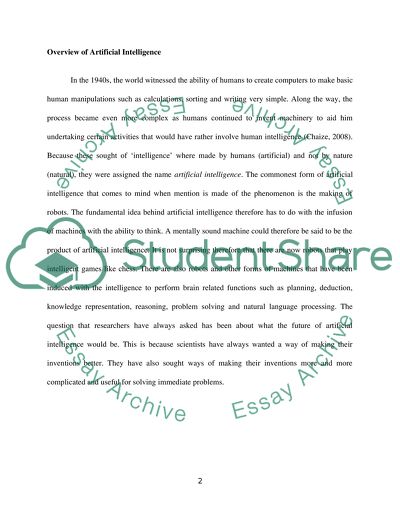Cite this document
(“Artificial Intelligence Research Paper Example | Topics and Well Written Essays - 2000 words”, n.d.)
Retrieved from https://studentshare.org/philosophy/1398051-artificial-intelligence
Retrieved from https://studentshare.org/philosophy/1398051-artificial-intelligence
(Artificial Intelligence Research Paper Example | Topics and Well Written Essays - 2000 Words)
https://studentshare.org/philosophy/1398051-artificial-intelligence.
https://studentshare.org/philosophy/1398051-artificial-intelligence.
“Artificial Intelligence Research Paper Example | Topics and Well Written Essays - 2000 Words”, n.d. https://studentshare.org/philosophy/1398051-artificial-intelligence.


